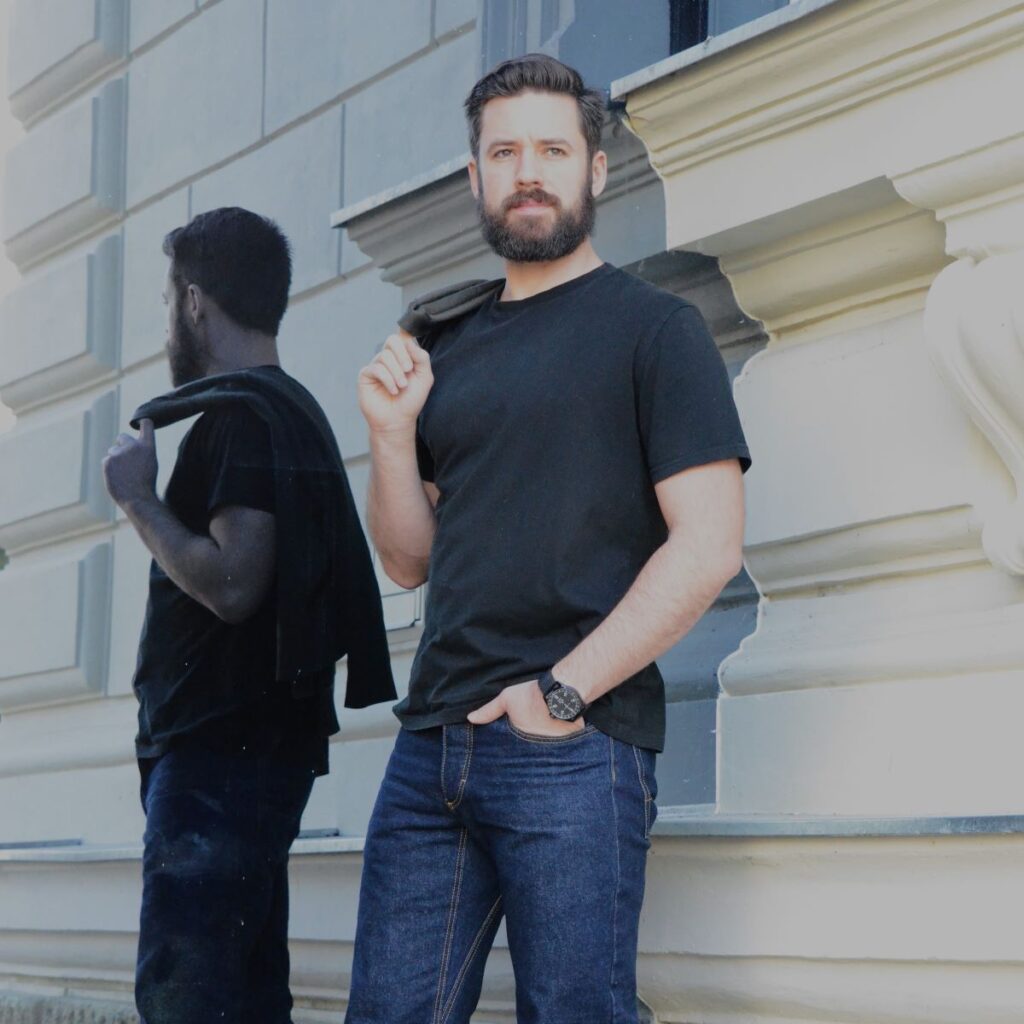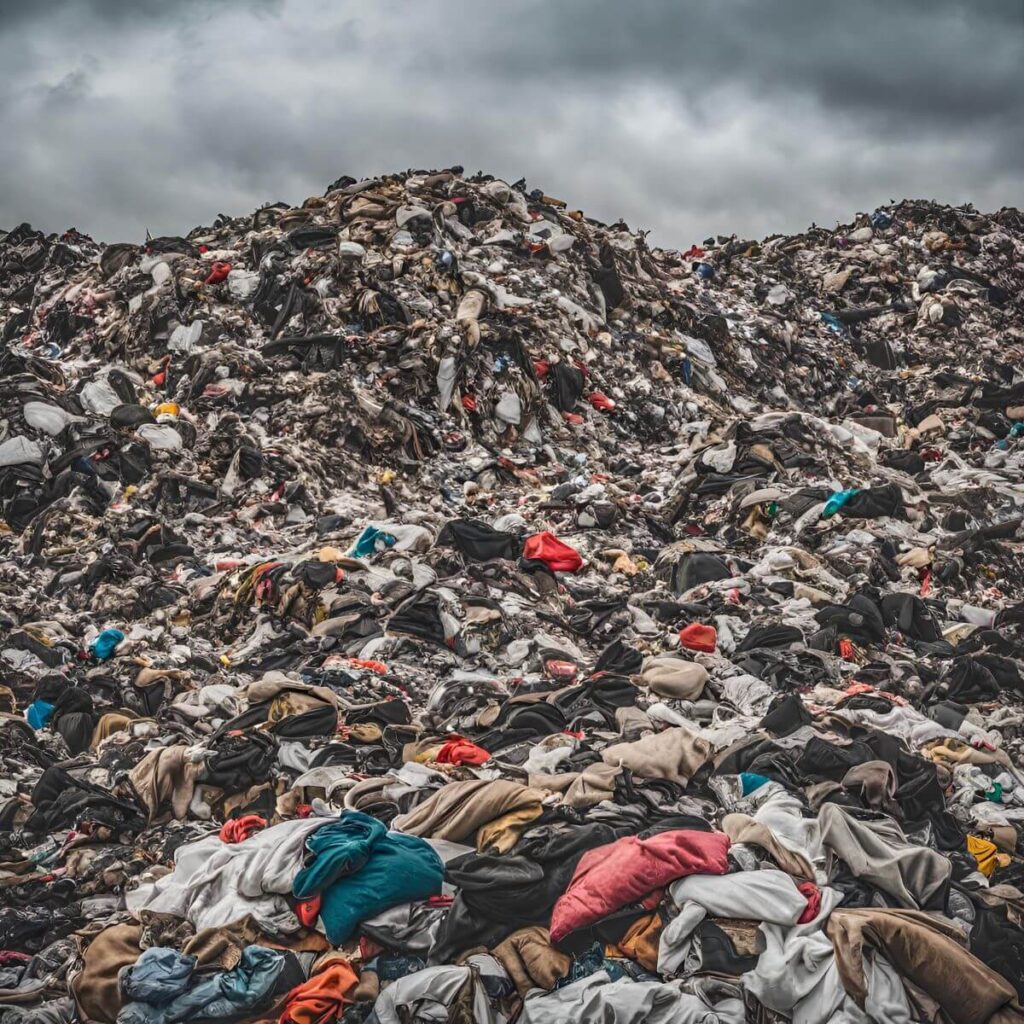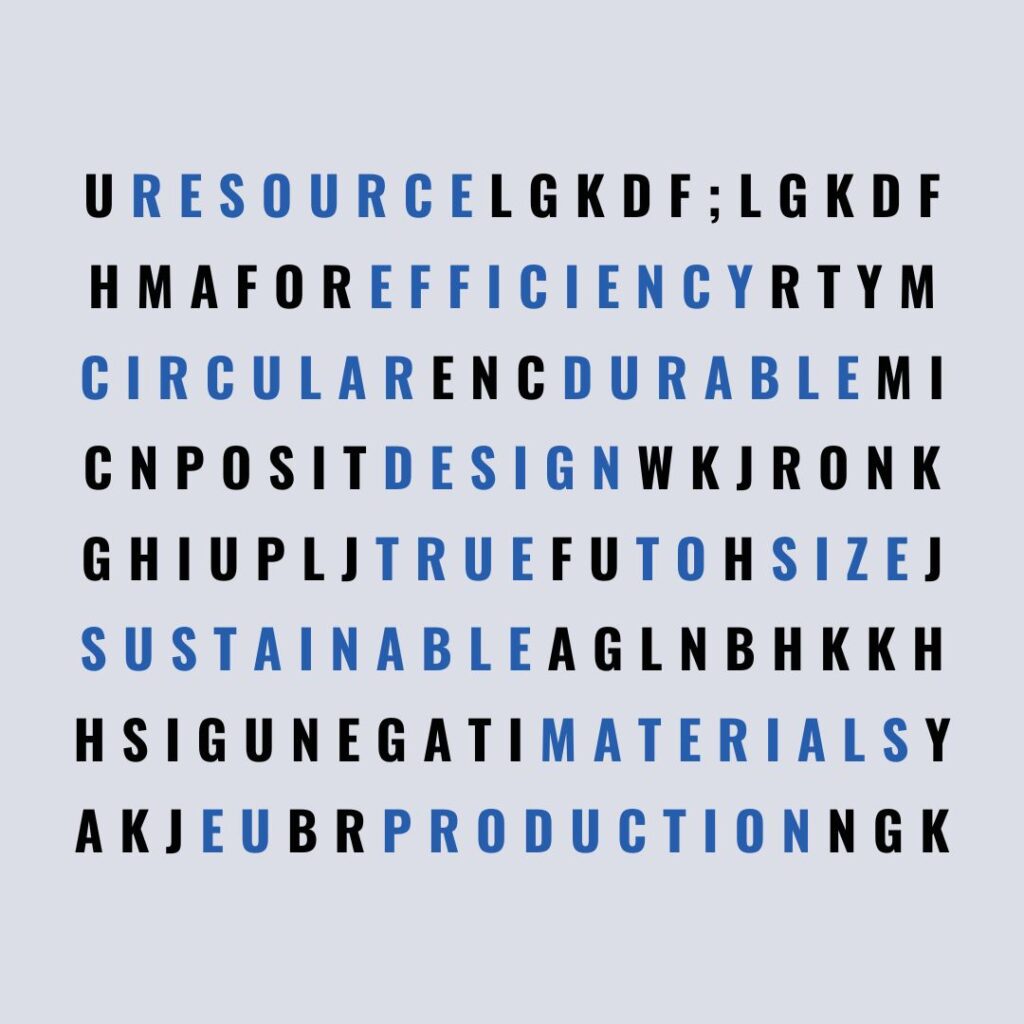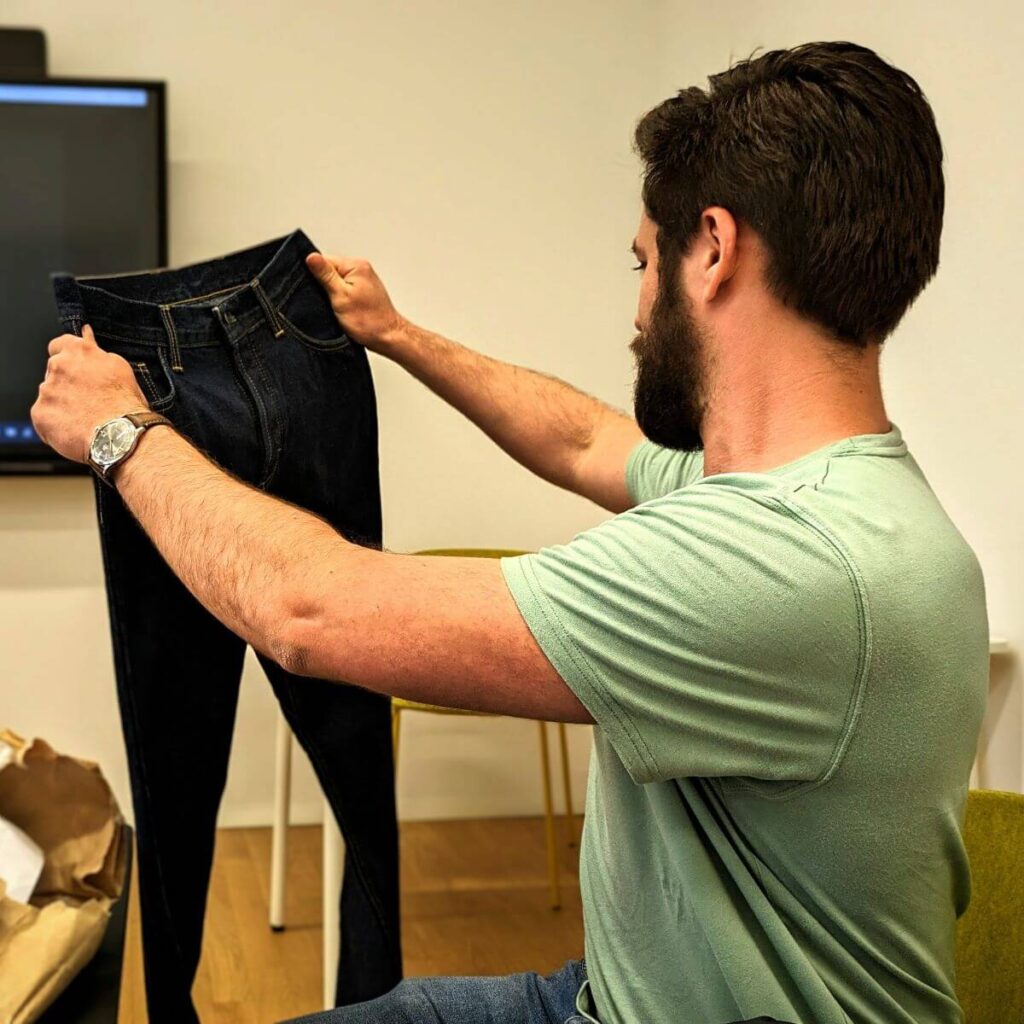
Hi, my name is Mario Holzlechner. I’m 35 years old, and I live in the wonderful city of Graz in Austria. I hold a master’s degree in Chemistry of Renewable Resources and have worked for several years as a project manager in the paper industry. The birth of my first son inspired me to make a career change and fulfill my long-standing dream of starting my own company.
I’ve always had trouble finding well-fitting pants and couldn’t understand why there isn’t sustainable clothing made in Europe at a reasonable price. Following the motto, “If you can’t buy it, make it yourself”, I founded the clothing label NOBS Clothing in 2024. But NOBS Clothing isn’t just another sustainable clothing brand—we’re rethinking the fashion industry from the ground up.
The fast fashion industry has an enormous waste problem: 30% of all clothing produced globally is discarded unworn due to overproduction. That’s 45 billion garments per year, or a truckload of clothing ending up in landfills or being incinerated every four seconds.
The fashion industry is the second-largest polluter globally, right after the oil industry. 25% of the world’s freshwater pollution is caused solely by textile production and processing.
The industrial cultivation of cotton fibers leads to massive pesticide use and water consumption—up to 10,000 liters per kilogram of cotton—resulting in irreversible damage to ecosystems (e.g., the drying up of the Aral Sea).
As for the intolerable working conditions of garment workers in developing countries, everyone is familiar with images of sweatshops in Bangladesh, where the majority of our clothing is produced.
Fast fashion is cheap, which at first glance seems advantageous for the consumer. However, besides the negative social and environmental impacts, fast fashion also means lower product quality at the expense of durability and fit. Clothing that reliably lasts for several years does not exist in fast fashion.
Due to the pressure for economic success, most clothing brands have had to reduce their manufacturing costs and thus the quality, leading to the perception that the general quality of clothing is deteriorating. Unfortunately, most of us have experienced the situation of a newly bought garment that just rips after a few times of wearing it.


At NOBS Clothing, we want to change the way we think about our clothes. We believe that the clothing we wear every day shouldn’t pollute the environment and should be made ethically without exploiting people.
We aim to promote a culture where clothing isn’t a disposable product but something you make your own and take responsibility for.
We want to transform a simple garment into a long-term companion in your personal life. This isn’t rocket science, but unfortunately, it isn’t the norm for most of today’s clothing.
The transformative approach of NOBS Clothing is built on three pillars:
Resource-Efficient Business Model
Pre-Order Campaigns and On-Demand Production: We sell clothing through pre-order campaigns and produce on demand (make-to-order strategy) to align supply and demand, completely avoiding overproduction.
Circular and Durable Product Design
Thoughtful Patterns: We design clothing with well-thought-out patterns to enhance durability and freedom of movement.
Use of Mono-Materials: We use fabrics made from single materials (e.g., 100% cotton) to ensure recyclability.
Repair Kits: We offer repair kits to extend the longevity of our clothing.
True-to-Size Concept: Our true-to-size sizing simplifies size selection and minimizes returns.
Sustainable Materials and Production
Eco-Friendly Fabrics: We use fabrics made from sustainable fibers like recycled cotton, hemp, linen, and Lyocell.
Modern Production Technologies: We employ innovative production methods, such as dyeing techniques that use electricity instead of harmful chemicals.
Transparent Supply Chain: Our supply chain is short, transparent, and entirely within the European Union.


We produce and sell sustainably manufactured clothing made in the European Union. We focus on basics and timeless designs, optimizing the durability of our garments.
We leverage the expertise of European companies and combine it with modern, sustainable production technologies to reduce the environmental impact of our clothing. We offer transparent insights into our production facilities so you can see exactly how your clothing is made.
This is a gallery to showcase images from your recent social posts